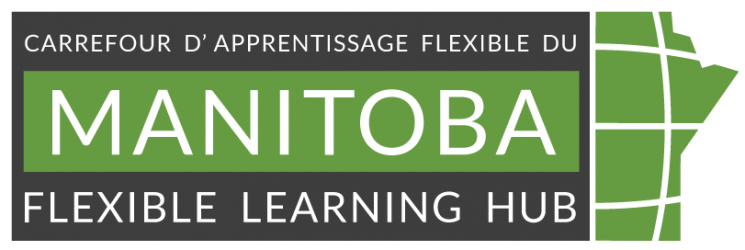
Instructional design consultations for instructors and professors
Content reviewed June 2023
Thinking of being more present in your online course – but unsure how? Hoping to be greeted by a sea of excited (but possibly anxious) students who are eager to engage with their peers and participate in discussions in your online synchronous, blended or distributed class?
The Manitoba Flexible Learning Hub (MB Hub) is here to help. Improved learner outcomes are a result of engaging, purposefully-designed, flexible courses.
Book a consultation
The MB hub staff will work with you, instructors, professors and other teaching staff to discover ways to enhance your institution’s online or remote learning offerings.
Our Instructional Designers, thru an Instructional Design Consultation, will help you explore various strategies to ensure that evidence-based pedagogical practices inform your online course.
Ready to get started?
Sign up for a one-hour consultation with an MB Hub staff to help take your online course to the next level!
Note: All meetings will be remote and will use Microsoft Teams. There is no need to install or have a Teams account. You can join with your usual internet browser when it is time to meet.

If you are looking to meet with our Digital media specialists, book a Creative Media Consultation.
Book a course development consultation if you want to develop anything from a single course module to a full course.
Roles of Instructional designers and Course authors
Instructional designers (IDs) and Course authors (CAs) are an integral part of the Manitoba Flexible Learning Hub (MB Hub) supported course development project or course. The purpose of this section is to articulate the roles and responsibilities of IDs and CAs at the MB Hub during course development.
Instructional designers
Instructional designers typically collaborate with course authors for designing and developing learning experiences. They work together to make learning effective. An ID often requires wearing several hats and holding various responsibilities. IDs are going to perform the following as part of their role:
- Collaborate with CAs to create a course blueprint and learning objectives.
- Provide pedagogical advice on the constructive alignment of course blueprint and evidence-based practices about online teaching and learning.
- Apply pedagogical expertise regarding course delivery modalities, teaching strategies, learning activities, and assessment mechanisms.
- Recommend the applications of existing learning technologies to meet specific learning needs within a course.
- Review the content for alignment, student usability, and completeness.
- Manage the course development project by coordinating meetings and timelines.
Course authors
Course authors are the primary focal point of content knowledge to design a learning experience or a course during an MB Hub-supported project. Their roles are as follows –
- Create the course blueprint with aligned learning objectives, activities, assessments, and instructional materials.
- Either identify or identify and write the content of the course, including learning modules, reading materials, and assessments.
- Ensure the copyright for online course materials.
- For a course where the MB Hub completes the draft build, CAs review and provide feedback on the course draft created by the MB Hub.
- For a course where MB Hub collaborates with CAs from a specific institution on their course, CAs review and provide feedback on the course draft according to their institution’s policy.
- Review the content feedback from other team members and edit the content accordingly.
Terminology
Assessments are designed to evaluate learner progress in attaining the stated learning objectives (Quality Matters, 2018).
Constructive alignment refers to alignment between learning outcomes, learning activities and assessment of every course (University of British Columbia, 2023).
Instructional materials are used in a course to enable learners to achieve stated learning objectives or competencies (Quality Matters, 2018).
Learning activities refer to any form of learner participation which promotes active learning that contributes to the learning process and to learner persistence. These include class discussion, practice quizzes, tests, case studies, students’ presentations, role-playing, or labs (Quality Matters, 2018).
Learning objectives precisely and clearly describe what learners will learn and be able to do if they successfully complete the course. Learning objectives are measurable (Quality Matters, 2018).
Usability defines all learners can navigate and interact with course components easily (Quality Matters, 2018).
Sources
This web section is developed based on the Memorandum of Agreement (MoA) between the Manitoba Flexible Learning Hub and its partner institutions. MoA is the operational guideline for the MB Hub.
The web section is aligned with the Letter of Offer (LofO) used when recruiting course authors and developers for the MB Hub.
This web section is aligned with the Project Initiation Document (PID) while developing a course used by the Manitoba Flexible Learning Hub.
References
Quality Matters. (2018). Quality Matter Higher Education Design Standards for Online and Blended Courses. Annapolis: MarylandOnline, Inc.
University of British Columbia. (2023, May 26). Assessment appendix: Constructive alignment. Retrieved from Remote Assessment Guidebook: https://blogs.ubc.ca/assessmentguidebook/assessment-appendix/constructive-alignment/
